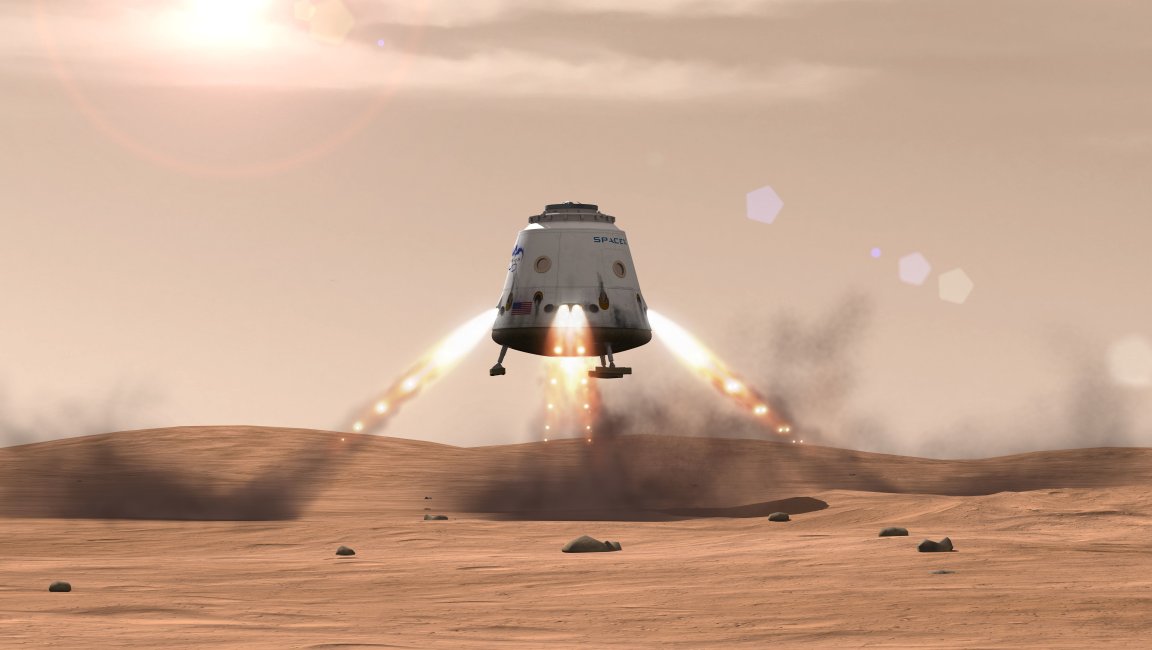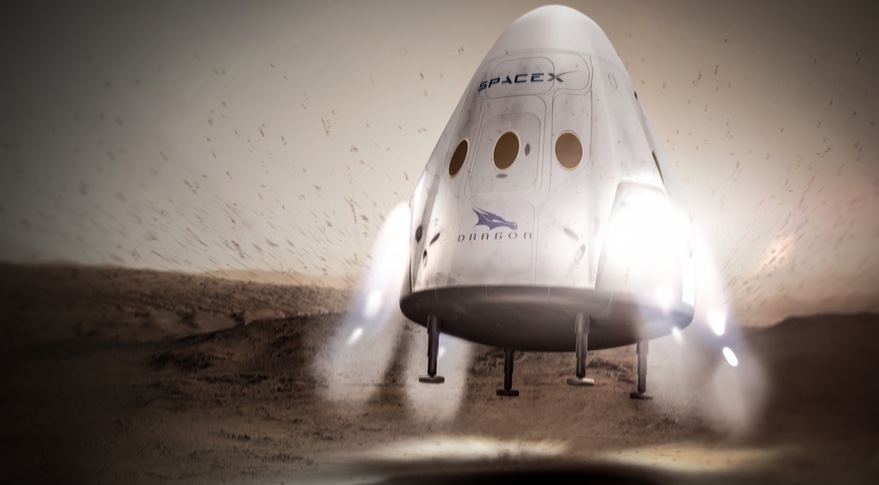
Change Of Plans
SpaceX has abandoned its plans to equip future versions of the Dragon spacecraft to undertake powered landings. This change will affect long-term plans for Mars, as CEO Elon Musk acknowledged to the International Space Station Research and Development Conference on Wednesday.
The Dragon spacecraft that is currently under development for NASA’s commercial crew program will use SuperDraco thrusters only as a launch abort system, not to land on any surfaces. During a Q&A session, Musk replied to questions about Dragon’s propulsive landing capabilities by saying, “It was a tough decision. Technically it still is, although you’d have to land it on some pretty soft landing pad because we’ve deleted the little legs that pop out of the heat shield.”

Safety certification issues for propulsive landings were behind the cancellation of the plans to transition away from water landings and toward propulsion-assisted landings on solid ground. “It would have taken a tremendous amount of effort to qualify that for safety, particularly for crew transport,” Musk said.
Bigger Red Picture
Additionally, the overall goal of SpaceX is now to land larger spacecraft on Mars to further the long-term goal of getting humans on Mars. “There was a time that I thought the Dragon approach to landing Mars, where you’ve got a base heat shield and side-mounted thrusters, would be the right way to land on Mars,” Musk said during the session. “Now I’m pretty confident that is not the right way and there’s a far better approach.”
The alternative approach will also use a version of propulsive landing:
SpaceX’s new plans for the Falcon Heavy have recently evolved, and it makes sense to consolidate the costs of this kind of landing in a larger spacecraft. This change may also have either pushed back or canceled the Red Dragon mission, which was originally intended to land a Dragon 2 spacecraft on the surface of Mars.
We’ll all be eagerly awaiting more updates, possibly presented in Adelaide, Australia at September’s International Astronautical Congress meeting. In the meantime, it’s Twitter and the Cape to watch the Falcon Heavy.